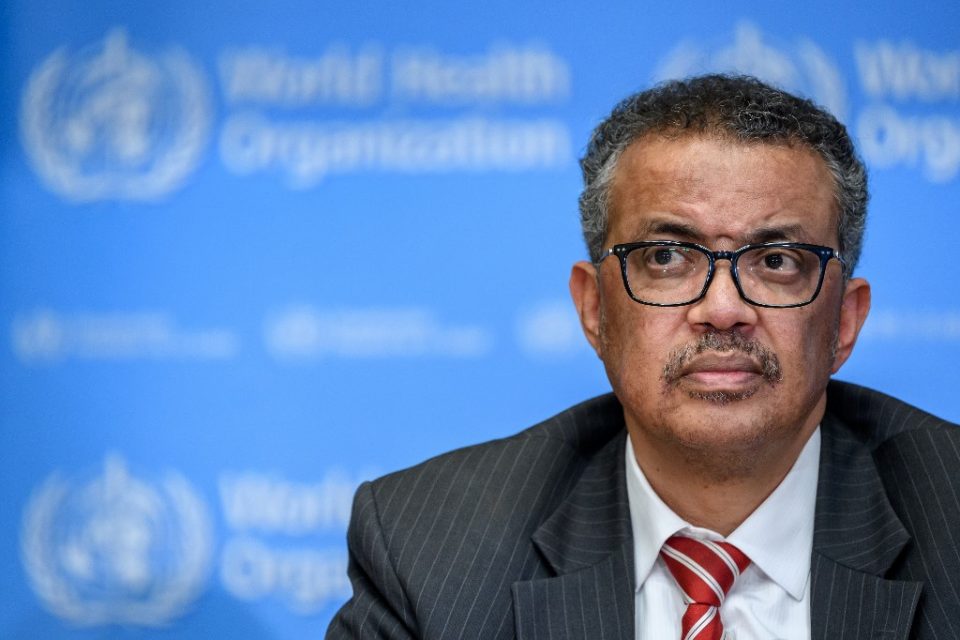
by Dmitry Zaks, with AFP bureaus
Agence France Presse
Hundreds of millions of people worldwide kicked off the weekend under a coronavirus lockdown, as the global death toll accelerated sharply and the World Health Organization warned the young they were “not invincible”.
The pandemic has completely upended lives across the planet, sharply restricting the movement of huge populations, shutting down schools and businesses, and forcing millions to work from home — while many have lost their livelihoods entirely.
While President Donald Trump insisted the United States was “winning” the war against the virus, individual states dramatically ramped up restrictions, with New York and Illinois joining California in ordering residents to stay home.
The virus death toll surged past 11,000 worldwide, with 4,000 alone in worst-hit Italy where the daily number of fatalities has shot up relentlessly over the past week.
While the elderly and those with pre-existing medical conditions are the hardest hit by the virus, WHO chief Tedros Adhanom Ghebreyesus warned that young people were also vulnerable.
“Today I have a message for young people: you are not invincible. This virus could put you in hospital for weeks — or even kill you,” Tedros said.
“Even if you don’t get sick, the choices you make about where you go could be the difference between life and death for someone else.”

China on Saturday reported no new local infections for a third straight day, and the WHO said the central Chinese city of Wuhan, where the virus emerged late last year, offered a glimmer of “hope for the rest of the world”.
But there are growing concerns of a new wave of “imported” infections in the region, with Hong Kong reporting 48 suspected cases on Friday –- its biggest daily jump since the crisis began. Many of them have a recent history of travel to or from Europe.
Across Europe, governments continued to rigorously enforce lockdown measures as the continent’s most celebrated boulevards and squares remained silent and empty even as warmer spring weather arrived.
Italy reported its worst single day, adding another 627 fatalities and taking its reported total to 4,032 despite efforts to stem the spread.
The nation of 60 million now accounts for 36 percent of the world’s coronavirus deaths and its death rate of 8.6 percent among confirmed infections is significantly higher than in most other countries.
France, Italy, Spain and other European countries have told people to stay at home, threatening fines in some cases, while Bavaria became the first region in Germany to order a lockdown.
Britain, falling in line with its neighbours in the European Union, also announced tougher restrictions, telling pubs, restaurants and theatres to close and promising to help cover the wages of affected workers.
– US ‘hotbeds’ –
With virus fears gripping the United States, its largest state California — with over 1,000 cases and 19 deaths — told its 40 million residents to stay at home.
New York state, which has reported over 7,000 cases and 39 deaths, followed suit on Friday, ordering its nearly 20 million residents to do the same from Sunday evening.
Trump applauded the New York and California decisions, but said he did not think a nationwide lockdown was needed.
“Those are really two hotbeds,” he said. “I don’t think we’ll ever find (a US-wide lockdown) necessary.”
Shortly after the president spoke, the governor of Illinois ordered residents of the midwestern state to stay at home and the Connecticut governor did the same.
The restrictions so far imposed in seven states cover around 100 million people, with the country’s three most populous cities — New York, Los Angeles and Chicago — under lockdown.
Trump also announced Friday that the US and Mexico have agreed to restrict non-essential travel across their border beginning on Saturday.
Meanwhile a staffer in the office of US Vice President Mike Pence, the pointman for Washington’s response to the outbreak, tested positive for the coronavirus.
The family of country music legend Kenny Rogers, who died aged 81, said Friday they would hold a small private service “out of concern” for the virus emergency.
– ‘Idiots’ –
France said more than 4,000 people were fined on the first day of confinement and ministers described those breaking the rules as “idiots”.
The strict measures follow the template set by China, as a lockdown imposed in Hubei province, of which Wuhan is the capital, appeared to have paid off.
Europe now accounts for more than half of the world’s fatalities linked to COVID-19.
Accurate figures are difficult to come by, however, as many of those who die suffer from other illnesses and infection rates are uncertain because of a lack of testing in many countries.
The shadow of the virus is lengthening across Africa and the Middle East too.
Gabon confirmed sub-Saharan Africa’s second known death, with reported cases across Africa standing at more than 900 and rising fast.
In Iran, both supreme leader Ayatollah Ali Khamenei and President Hassan Rouhani promised the country would overcome the outbreak — but still refused to join the rest of the world in imposing heavy restrictions.
In Latin America, Cuba and Bolivia both announced they were closing their borders, and Colombia said it would begin mandatory isolation from Tuesday.
The pandemic has sparked fears of a global recession, battering the world’s stock markets and prompting governments to push huge spending plans to limit the damage.
Rio de Janeiro’s beaches will be off-limits to sunseekers from Saturday, leaving street vendors worried how they will survive with limited government support.
“As long as I can, I will continue to come here and try to sell cocktails. I still have not thought about what I will do when it is no longer possible,” said Jorge Martins on Ipanema beach.
© Agence France-Presse







